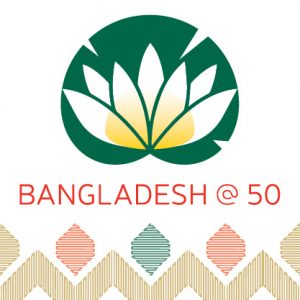 This blogpost is a collective first-person narration of the experiences of a group of women micro-entrepreneurs in Bangladesh, with a particular focus on the challenges posed to them during the Covid-19 pandemic in 2020. To retain the fluid nature of their conversations, the post is published as a free-flowing narrative. Acknowledgements to contributors and participants appear at the end of the post.
This blogpost is a collective first-person narration of the experiences of a group of women micro-entrepreneurs in Bangladesh, with a particular focus on the challenges posed to them during the Covid-19 pandemic in 2020. To retain the fluid nature of their conversations, the post is published as a free-flowing narrative. Acknowledgements to contributors and participants appear at the end of the post.
Our lives are stories. Every human has a story to tell. Many of these stories have been transformed during Covid-19 times, not least for women entrepreneurs across Bangladesh.
Here are our stories, and those of five other women entrepreneurs. We interviewed them as part of an ongoing research project about entrepreneurial experiences in our home villages since 2016 and through the Covid-19 period. The eight of us are from Moulvibazar, Mymensingh and Rangpur districts. We are part of the eSheBee women entrepreneurs’ research fellows network, developed with Juli Huang from the University of Edinburgh.
Our backgrounds in entrepreneurship and running our own businesses are many. But first we must tell you that a woman in our country has to endure so much when she starts a business or a shop. There are many fears hidden in the minds of girls. Many believe they will be trapped by bad people if they go outside their homes, or they will be judged negatively by their families and neighbours. But many of us did not have much choice.
Sharmin’s father returned home empty-handed after working in Saudi Arabia for 18 years. His company there had closed down. The whole family faced a crisis. Sharmin knew how to sew, and she started thinking ways she could help her family. She gave up her studies and started a sewing business in 2016. She borrowed 15,000 BDT (£ 150) from her mother to buy cloth, and then repaid it with what she earned by sewing and selling clothing out of her own bedroom.
Moyna used to accompany her father to make and sell cakes in the market. At first her family members said it was not right for a girl to go to the market, but Moyna did not listen. After she married, she started her own cake business out of her husband’s grocery store. She took a loan from her husband for the materials and would wake up at three in the morning to make flour from rice. Then she would bake and sit in the shop and watch the crowds come. She proudly told us that everyone now knows her as ‘Mina Dokani’ (‘Moyna Trader’; see banner image above).
From a young age, Lipi was fascinated by sewing. She learned from her mother and sewed all her own clothes. Now Lipi is a housewife, mother and entrepreneur. Yet, she is most comfortable introducing herself as an entrepreneur. Although most people did not accept her work in the beginning, now her in-laws support her. She sold boutique items from her home from 1998 and finally rented a showroom in town in 2016 to display her sarees and three-piece garments.
We never thought that something like the Covid-19 pandemic would happen. The year 2020 was one of the scariest, when our lives changed forever. Eti learned from neighbours that people cannot sit closely together and chat. People cannot go to crowded places. It is possible for rich people to stay away from other people’s houses, but people such as Eti have to go out to survive. When she did travel door to door asking if anything needed sewing in someone’s house, people told her not to return. Laxmi similarly felt she risked her life to go out and buy thread, but she had to or else her family would starve.
Sharmin first learned about Covid from Facebook. Because the country was under lockdown, she could no longer go out to buy cloth. People could not go to work, and businesses were closed. People became unemployed. Day by day workers left Dhaka in groups and came to the village, with no money. Sharmin had to sell clothes at a low price to the few remaining customers because everyone had money crises. She could not overcome the damage to her business. Eti says, ‘People can barely eat now. How could they afford new clothes? Those who are rich have no problem. Everyone with businesses like mine are hardly surviving. All women small entrepreneurs have lost their earning sources. Sometimes we eat nothing for two days.’
When Moyna sat in the shop in the early Covid days, she told the few customers to maintain social distance. If she sold a product, she would put it in polythene and set it down at a distance for the person to retrieve. She would immediately wash her hands with soap and tell the clients to do the same. It is necessary to make these efforts to save oneself from this epidemic. But eventually Moyna ran out of money to make cakes, and the shop was closed. ‘I felt emotionally broken, but there was nothing I could do.’ After many days, the country started to open slowly. Moyna took a loan from an NGO and from other people and started the business again.

Eti with her sewing machine © Nargis Begum, 2020.
This image is subject to copyright; please do not use without permission.
As the situation improved, people started returning to Eti to have clothes made. She told them to use soap and wash their hands. ‘You can use any soap you like. It does not have to be expensive soap. I learned this from watching the TV next door, and from people announcing health information through a microphone in the village,’ Eti explained. Covid-19 has taught people all about the rules of health, and this awareness has risen in the minds of people now.
Lipi’s business now has an online page, with pictures of products. Customers pay in advance using bKash (digital money) and receive socially distanced home delivery. Lipi thinks it is high time that businesses are run digitally. The year 2020 changed many people’s lifestyles, and there are challenges at every step. But women such as Lipi have been facing challenges from the very beginning of their businesses. From dawn to dusk and even later, Lipi does household work, deals with customers, sells clothes, and sews new clothes. This is how she is running her family. She watches motivational videos from other entrepreneurs on YouTube to gain confidence when she feels upset.
For others, the idea of moving online is more difficult. Moyna said, ‘I didn’t attend school so I don’t know about online. Otherwise, I would have been able to do some business on the internet.’ Laxmi also received little education about modern technology. She does not understand online business and does not think she could manage one. ‘Maybe educated people can use their knowledge and work using “online”. For people like us, this is impossible. The word “online” is foreign to us,’ explained Eti. There are also limitations to selling online, because there is now huge competition, scams and dishonesty in business.
Despite these drastic changes, Sharmin said she still feels blessed to be an entrepreneur. ‘Because of this, I am able to provide financial support to my family, and a social change is also taking place. Seeing my work and courage, other girls in the village have started a clothing business and are earning profits.’ Hafiza’s experiences struggling with her own business led her to start an online group called ‘Greater Mymensingh Women Entrepreneurs Association’. Together they created an online supershop, ruralmarket24.com, which hosts over a hundred women entrepreneurs’ products. This is how they are trying to turn their lives around during Covid-19.
We think that all women entrepreneurs in Bangladesh have faced obstacles such as ours. To make up for the loss of capital, jobs, and money in our families, women like us have to struggle hard. We continue to attend various meetings, seminars and trainings, and we do so with smiles on our faces. But we feel different inside. Sometimes the struggle is too hard. During Covid-19, it was terrifying to learn that if a person touches another person, she will get infected. What a horrible thing, this situation where everyone has to live alone like a selfish person. Instead, in this situation, everyone needs to be treated well. There is something called ‘humanity’. Those who are selfish may survive alone. But we think everyone should forget their differences and support one another. Only then can all people in society live well. No one would have to go hungry.
We will end by saying that life is always moving. It never stops, whatever challenges arise. Life maintains its flow. Happiness and sorrow, sometimes more and sometimes less, are both there in life. Overcoming all these challenges is how we move forward. We are the image of thousands of entrepreneurs in Bangladesh.
*
Acknowledgements: Many thanks to Moyna Akter Mina, Sharmin Akter (not related to the authors), Eti Begum, Hafiza Akter Rani (one of the authors), Laxmi Sana Debi, and Ayesha Siddiqua Lipi for sharing their life stories and Covid-19 narratives with us. We are grateful to Mosharrof Hossain (Founder and Team Leader, eSheBee Enterprises), Liana Shabnam Alien (Research Associate, eSheBee Enterprises), and Zeerin Sultana Tonika (Research Assistant, eSheBee Enterprises) for translating the written narratives from Bangla to English.
The views expressed in this post are those of the authors and not those of the ‘South Asia @ LSE’ blog, the LSE South Asia Centre or the London School of Economics & Political Science.
Banner image © ‘Moyna in front of her shop’, by Nargis Begum, 2020. This image is subject to copyright; please do not use without permission.
The ‘Bangladesh @ 50’ logo is copyrighted by the LSE South Asia Centre, and may not be used by anyone for any purpose. It shows the national flower of Bangladesh, Water Lily (Nymphaea nouchali), framed in a design adapted from Bangladesh’s dhakai & jamdani textile weaves. The logo has been designed by Oroon Das.
*








These stories are touching my heart.